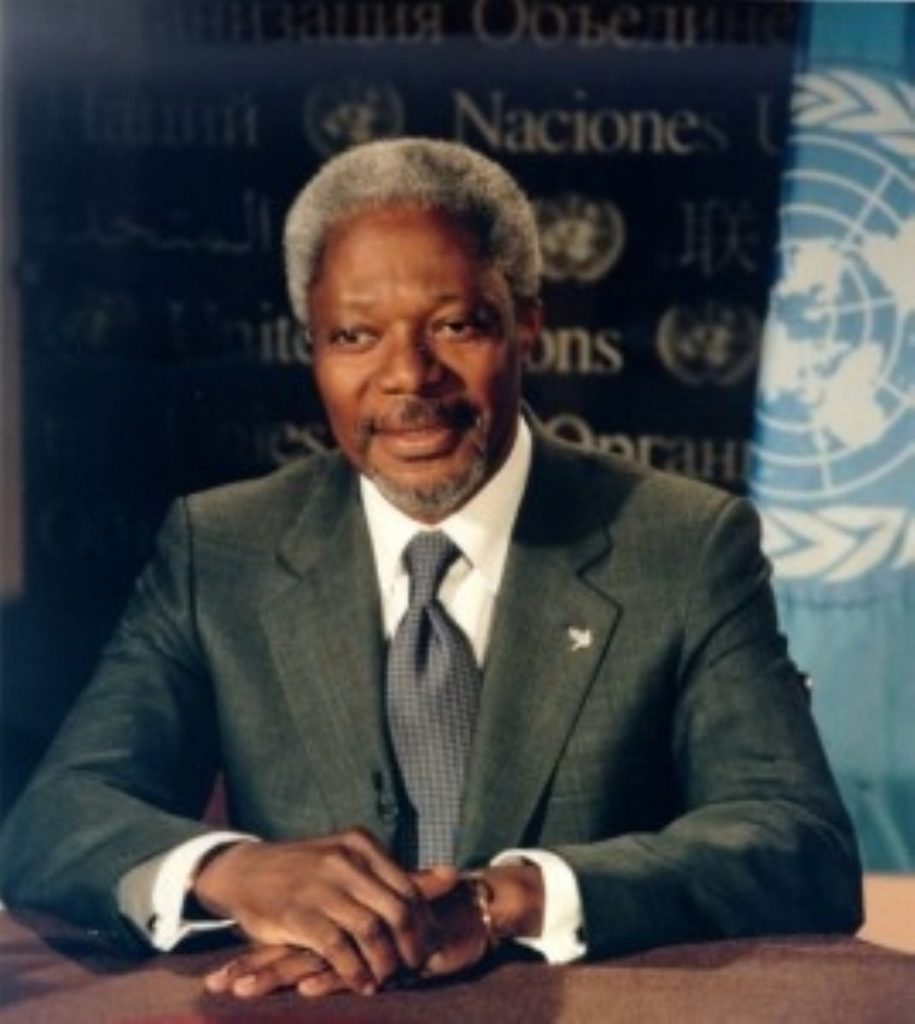Annan calls for end to unilateral, pre-emptive strikes
The United Nations Secretary-General Kofi Annan issued a strong plea on Tuesday for world leaders to embrace consensual, collective action and to end future “with us or without us,” pre-emptive strikes.
His address came before George W Bush delivered his annual speech to the UN in New York.
Mr Bush asked the UN and “all nations of good will” to aid the reconstruction of Iraq and to defeat terrorism.
Mr Bush is hoping to secure a new Security Council resolution paving the way for a multinational force to help provide security in Iraq.


Mr Annan, for his part, said the time was ripe to take a hard look at “fundamental policy issues” pertaining to the size and shape of the Security Council, especially with a view to structural changes.
“As for the composition of the Council, that has been on the agenda of this Assembly for over a decade.
“Virtually all States agree that the Council should be enlarged, but there is no agreement on the details,” he said.
The Council’s composition had to be addressed with “greater urgency,” he insisted.
On unilateralism, Mr Annan said the tradition of global consensus and collective security was now in question and the international community had come upon a “fork in the road,” “a moment no less decisive than 1945 itself when the United Nations was founded.”
“Now we must decide whether it is possible to continue on the basis agreed then, or whether radical changes are needed.
“But it is not enough to denounce unilateralism, unless we also face up squarely to the concerns that make some States feel uniquely vulnerable, and thus drive them to take unilateral action. We must show that those concerns can, and will, be addressed effectively through collective action,” he said.
Mr Annan said a panel of “eminent personalities” would be asked to explore the “current challenges to peace and security.”
They would assess how collective action addressed those “challenges” and would “review the functioning of the major UN organs; and recommend ways of strengthening the United Nations, through reform of its institutions and processes.”
Concluding his speech, he said: “The United Nations is by no means a perfect instrument, but it is a precious one. I urge you to seek agreement on ways of improving it, but above all of using it as its founders intended — to save succeeding generations from the scourge of war, to reaffirm faith in fundamental human rights, to re-establish the basic conditions for justice and the rule of law, and to promote social progress and better standards of life in larger freedom.”












